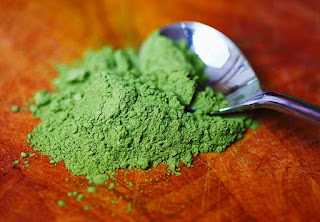Spirulina Benefits: Don't Miss It
Spirulina algae grow in oceans and salt lakes and are one of the most superfoods because of the benefits and nutrients it contains. Here are the most important benefits of spirulina.
People tend to look for nutritional supplements rich in vitamins and minerals as a form of compensation for poor nutrition, but what is spirulina? Do our bodies actually compensate? What are the health benefits of spirulina?
What is spirulina?
Spirulina is a type of blue-green algae that grows in oceans and salt lakes in subtropical climates.
Spirulina is a superfood due to its richness in plant pigments and its high ability to regulate photosynthesis, making it a popular ingredient in nutritional supplements.
Spirulina is characterized by its bitter taste, which makes it a good choice to mix it with milk, juices, and drinks of all kinds to get its benefits without its bitter taste.
spirulina benefits
Spirulina has very many advantages that made it one of the important nutritional supplements on the market, as it has potential roles for many benefits, we mention the most prominent benefits of spirulina in the following:
- Cancer resistance
Chronic inflammation can cause many diseases, including cancer.
And since spirulina contains antioxidants that fight chronic inflammation, spirulina may have an anti-cancer or preventive effect, especially because it contains phycocyanin, which is one of the most important components of spirulina responsible for its antioxidant properties, preventing the growth of tumors and even eliminating them.
As for oral cancer specifically, one has conducted studies on 87 people infected with a group of Altlevat mucous which are lesions cancerous, appeared in the study that after the use of 1 gram per day for a year I said mouth lesions by 45% in patients with, while she returned to grow and develop immediately after Stop taking it, but the effectiveness of the results of this study has not been proven so far.
- Heart disease prevention
Many studies indicate the role of spirulina in reducing the level of harmful cholesterol (LDL) and total in the blood, while increasing the level of good cholesterol (HDL), in addition to reducing triglyceride levels, which reduces the chance of strokes and heart disease associated with high blood fats.
In one study, it was found that taking 1 gram per day of spirulina reduced triglycerides by 16.3% and bad cholesterol by 10.1%, as confirmed by several studies. other this effect of spirulina, but with larger doses of up to 8 grams per day.
In addition, it was found that the proteins in spirulina stimulate the production of nitric oxide, which relaxes the walls of blood vessels and thus keeps blood pressure from rising.
- Reduce symptoms of allergic rhinitis
In a study conducted on people with allergic rhinitis, it was found that spirulina was able to alleviate some of the symptoms associated with allergic rhinitides, such as nasal secretions and congestion, sneezing, and itching to a large extent, which is caused by allergens, such as pollen, animal hair, and dust. Wheat, which may make it a possible alternative to treat the symptoms of allergic rhinitis.
- Regulating blood sugar levels
Some animal studies have shown that spirulina can significantly lower blood sugar levels.
In another study conducted on humans and included 25 patients with type 2 diabetes, eating 2 grams of spirulina per day reduced blood sugar levels to a degree that reduced the risk of death by 21%, but in fact, this study lasted for only two and a half months, which indicates that The relationship between spirulina and blood sugar needs to be re-examined in more depth.
It is worth noting that diabetics should not take spirulina supplements without consulting a doctor.
- Anemia treatment
The most common type of anemia is characterized by low hemoglobin or red blood cells in the blood, which is also related to iron deficiency in the body.
In a study of 40 elderly people with a history of anemia, spirulina supplementation increased the hemoglobin content of red blood cells and improved the functioning of the immune system. However, not many studies have been conducted in this regard, which means that larger studies are needed to understand the effect more precisely.
- Immune system support
Because of its high content of antioxidants, vitamins, and essential elements, spirulina may have a role in maintaining the health of the immune system, stimulating the production of white blood cells and antibodies, which may have a role in enhancing the work of the immune system in fighting some types of viruses, such as influenza, But this claim is still being studied.
- Promote muscle rebuilding
Some studies have shown that spirulina may be among the foods that increase the muscle's ability to withstand oxidative damage and reduce muscle cell damage, but this is still needed to be more accurate.
Spirulina nutritional value
After we learned about the benefits of spirulina, here is its nutritional value. Each tablespoon of dried spirulina powder, equivalent to 7 grams, contains a huge amount of vitamins and minerals, including the following:
| Protein | 4 grams |
| Vitamin B1 | 11% of the body's daily need |
| Vitamin B2 | 15% of the body's daily need |
| Vitamin B3 | 4% of the body's daily need |
| copper | 21% of the body's daily need |
| Iron | 11% of the body's daily need |
It also contains significant amounts of magnesium, potassium, and manganese, and all this benefit comes with only 20 calories and 1.7 grams of digestible carbohydrates, in addition to its high content of antioxidants and inflammation, including Phycocyanin.
It should be noted that the quality of the protein in spirulina is as excellent as eggs, as it contains all the essential amino acids that the body needs.
It is worth noting that spirulina is marketed as containing vitamin B12, but this is not true and has not been proven of the benefits of spirulina.

